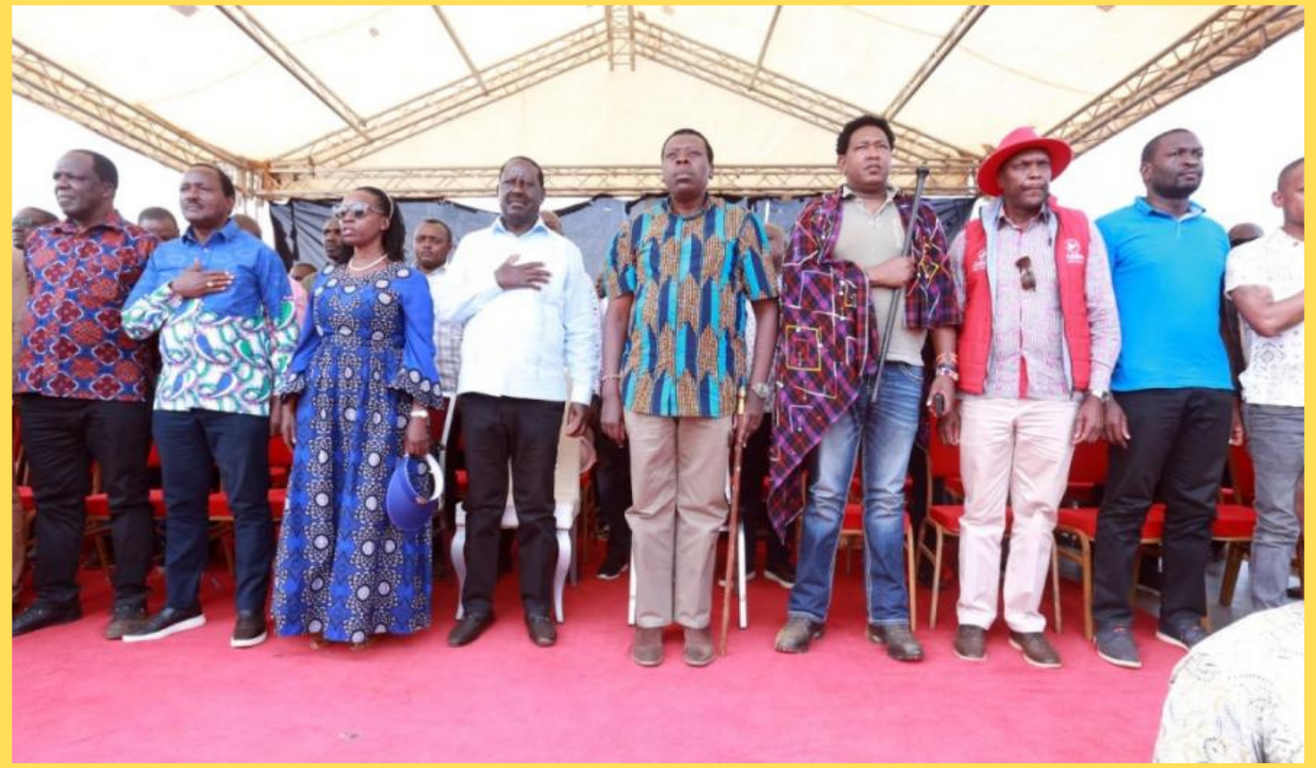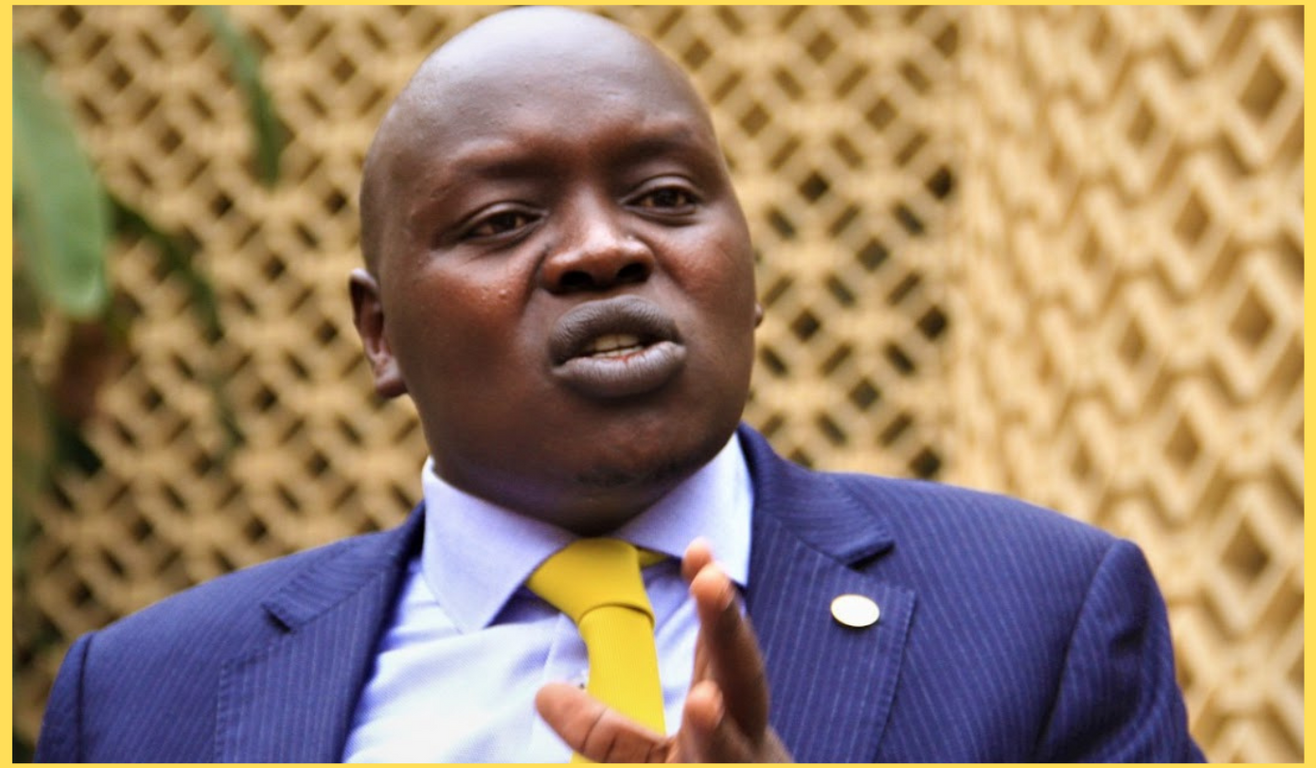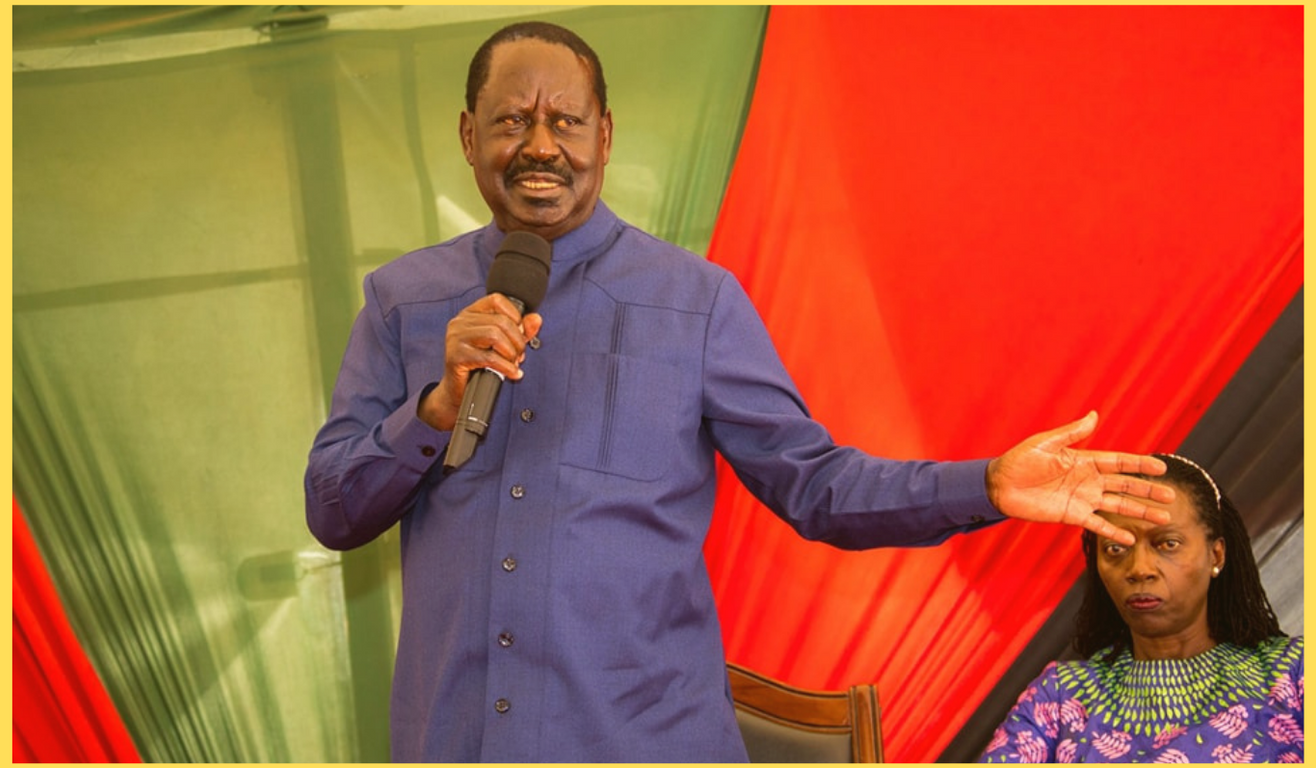Two things stand out in the latest move by Azimio on the talks and they are both important for the country. One is that Azimio is willing and ready to give the Peace Talks for national unity to address the immediate and long-term needs of Kenyans a fair chance to succeed, and will not rush into a confrontation with the government as the talks proceed.
The second big deal here is that Azimio wants Kenyans involved in the talks and they are not putting their tools of resistance down until some tangible achievements for the people of Kenya are in place.
“As the negotiators take up their responsibilities, we will embark on a series of direct engagements with members of the public through town hall meetings and public Barazas. We will hold the first town hall meeting in Nairobi on Thursday, 13th April 2023, to be followed by a people’s Baraza at the Kamukunji grounds on Sunday, 16th April 2023,” reads the statement in part.
“The purpose of the town hall meetings and public barazas is to enable the party explain to the people where we are and the upcoming course of action following the suspension of the protests”
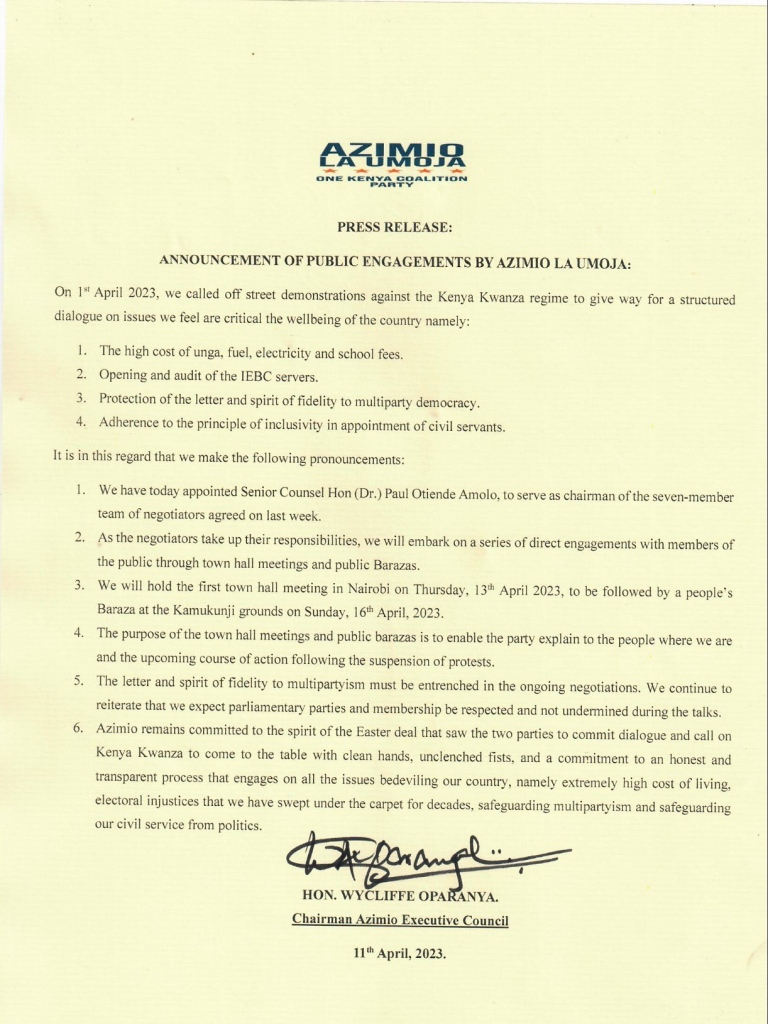
The first thing that is going to be front and center as the talks begin is the endless attempts to sabotage the whole process. Azimio should never allow itself to fall prey to that.
There are already issues of Ruto appointing smuggled Azimio MPs like Adan Keynan to his negotiating team. Those are relatively minor and negligible issues. It is what happens at the real talks that Kenyans want to see and they will figure out quite clearly who is serious about their plight and that of the country, and those who are there to try to kill the talks and go back to the UDA business as usual.
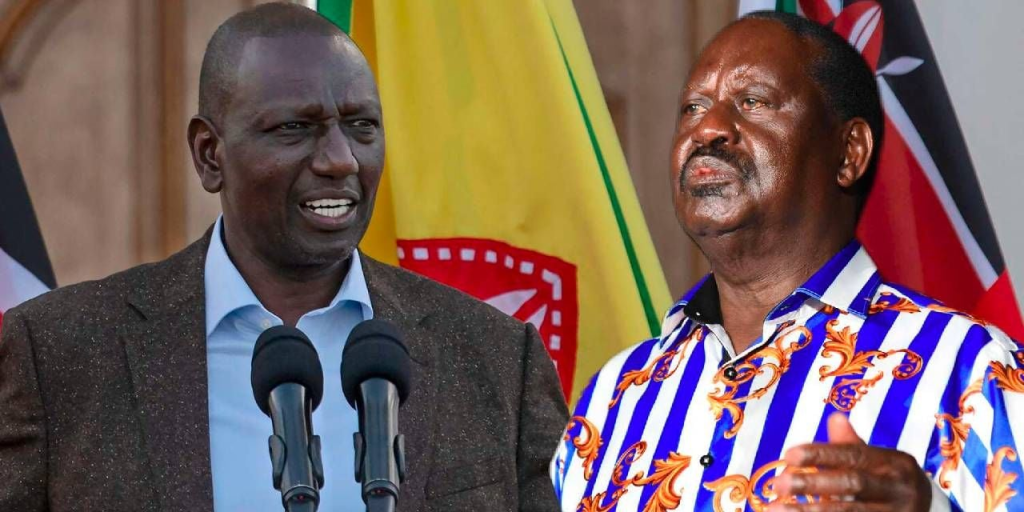
The next two weeks are critical for these Raila and Ruto talks and Kenyans will see if there is any hope there or if the whole thing is a charade for showboating pre-determined to fail. If the talks are heading in the right direction, both parties have to commit themselves to a give-and-take attitude as long as the broader needs of Kenyans and the unity of the country are met.
If the talks collapse, Kenyans know we are headed for mass rallies probably by Monday, May 1, 2023, on Labour Day and only the good Lord knows what happens after that.
Every Kenyan at this time is hoping the politicians are able to reach a compromise for the sake of the country. Kenyans by now know very well what is on the table, starting with reducing the cost of living for ordinary Kenyans and building the ground for political unity and stability in the country.
Some other critical issues are emerging and the political dialogue process needs to address those as well. One of the big issues right now is that Kenyan health workers including doctors, nurses, and all healthcare workers have not been paid for more than three months.
In fact, the Kenya Medical Practitioners, Pharmacists, and Dentists Union (KMPDU) has already given their employers 7 days to pay their salaries or they will go on strike. That is something that has been every other month in Kenya since devolution and it is time to look for real and lasting solutions.

“The people who suffer are the healthcare workers in the counties who have to work without salaries and in hospitals without proper equipment and reagents that are needed. It’s been ten years since devolution, yet no proper frameworks have been established to ensure health services function efficiently and adequately,” said Dr. Davji Atellah, KMPDU Secretary General
In a joint statement on Tuesday, April 11, the medics say more than 40 counties are yet to either pay healthcare workers or remit statutory deductions.
This, the unions say, makes members miss out on the very services they are offering to their patients.
“We find it preposterous that government employees, especially those that provide essential services in the health sector, are continuously inundated with notifications of delayed salary payments and statutory deductions,” said the unions.
“It is damning to say the least that our members cannot afford the same services they offer. Subsequently, these affects healthcare workers’ standards of living, motivation and thereby injuring their productivity.”
Unions included in the statement are the Kenya Medical Practitioners Pharmacists and Dentists Union (KMPDU), the Kenya Union of Clinical Officers, the Kenya National Union of Nurses.
“Within seven days, counties that shall not have paid salaries and statutory deductions should not expect healthcare workers to report on duty,” said the medics in a statement.
The unions want payments for all medics to be done by the national government.
“The government should establish a mechanism to pay healthcare workers directly from a central point. A budget should be set aside for annual recruitment of 20,000 additional healthcare workers as promised,” said the unions in their statement.
The big problem with paying healthcare workers is that they are supposed to be paid by the counties which employ them under the devolution laws.
It is expected that the counties will find within their budget enough money to pay all healthcare workers while meeting all their other financial obligations. That has not worked. Yes, right now the elephant in the room is that the Ruto government has simply refused to transfer any money to the counties because they claim they are broke or they just have other priorities with the taxpayer money they have.
At the larger level, Kenyan politicians and healthcare workers, and the unions that represent them need to address the inadequacies in the funding formula for healthcare in our country.
As it is, all healthcare workers are paid by the counties so here is the question. If all healthcare workers are paid by the counties, why do parliament and the president allocate a whole chunk of the health budget to the national government?
What exactly does the national government do with the health budget they allocate themselves? So far what Kenyans have are strikes by medical workers all the time for lack of pay.

If all healthcare workers are paid by the counties wouldn’t it be more sensible if all health budget goes to the counties? If the national government wants the health budget then they should pay the workers who do their job in the county health centers.
In short, there is a real need to look at the funding formula for health in the country and make adjustments to ensure that healthcare workers who sustain the lives of Kenyans are paid fairly and promptly.
If healthcare is going to take half the budget of the counties the country is going to have frequent strikes and disruption of health services every day and it is not fair to those who depend on public health. There is a serious need to look into healthcare funding in Kenya and the time to do so is now.
The other thing that just shocked me out of my mind is that Kenya has signed an agreement to lease land in Zambia for maize production and that shady scheme is already underway as of last month.
It means Kenya will pay billions for land leases and then the super-rich Kenyans will set up farms there and then export their produce to Kenya. It is just insane to imagine that a country with so much unused productive land where small-scale Kenyans have no means to produce anything from their own land because they don’t have the tractors to plough their land, they have no seeds and the cost of fertilizers are through the roof.
It is stunning quite frankly, that instead of helping Kenyan farmers to maximize food production on their own land as the Ruto government has been promising for months now, the Kenya government has signed a lease where the rich fellows will produce food for Kenyans in a foreign country and export it back to Kenya.
First of all who is paying for the lease which has already been signed by the Kenyan government? Secondly, who is going to farm the land and export maize back to Kenya? Are ordinary Kenyan farmers going to be allowed to move to Zambia, farm the land, and export maize back to Kenya? Do Kenyans still have the need and resources to farm their land in the country and produce food?
What happens to Kenyan maize farmers struggling with no resources and medieval tools to farm their lands and produce food? Can the Kenya government help these farmers with the resources they need to produce food on their own land?
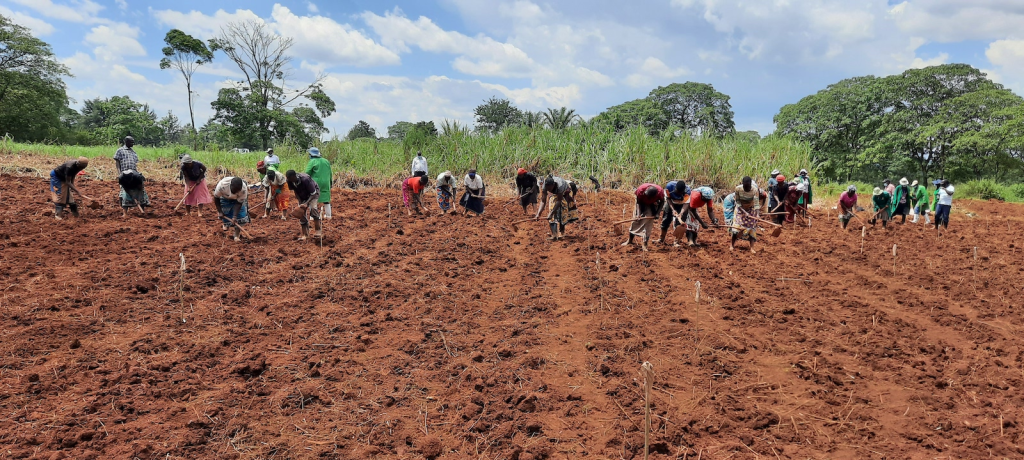
And more importantly, why has this process been kept secret from Kenyans by Ruto and his government until it has been exposed by the media?
Here are the details we know so far about this really creepy deal to produce Kenyan food in land leased outside the country.
Zambia leases land to Kenya for maize to meet its national food deficit
APRIL 10, 2023

Kenya’s Agriculture Minister Mithika Linturi and his Zambian counterpart Mtolo Phiri signed an MoU in March to herald a new era of large-scale farming of maize in Zambia for export to Nairobi, but concerns by the opposition over past treatment of locals raise fears about the deal.
Kenyan representatives had first come to Lusaka looking to import about 1 million tonnes of white maize to meet its national deficit.
Zambia could not meet Kenya’s immediate grain requirements but offered between 20,000 hectares to 40,000 hectares for growing the crop for the Kenyan market.
The agreement would allow Zambian farmers to grow maize for exclusive export to Kenya after the country suffered its sixth consecutively failed rainy season.
Noel Simukonde, a smallholder farmer on the outskirts of the capital Lusaka, says the MoU with Kenya could help Zambia ramp up crop output and elevate most farmers from poverty.
Solution to food insecurity
The country’s agriculture remains a largely subsistent undertaking dominated by government support to more than 1 million smallholders growing maize for food security, providing them with seeds and fertilizer.
However, the country still prevents exports, so maize and maize flour, or mealie meal, is smuggled out of Zambia, where the price is better.
Despite enjoying favorable climatic conditions for growing crops such as maize, wheat, and soya beans, Zambia has one of the most underutilized arable lands in Africa. According to official statistics, only 7 million out of 45 million hectares of arable land is currently under cultivation for a country that is 75 million hectares in size.
As adverse weather patterns continue to ravage Southern and East African regions, pulverizing crops and livestock production, Zambia is fast becoming a key source of grain and livestock feed.
Boost to trade deals.
Zambia sold maize to South Sudan for the first time, underlining the vast expanding market as the scarcity of grain increases across the continent.
Initially, Zambia was looking for large-scale domestic farmers to meet the maize requirements for Kenya. Still, according to Minister Linturi, Kenyan farmers will start farming in the Southern African country.
The arrival of Kenyan farmers could help to spur maize production in Zambia through the transfer of technologies. Experts say this could potentially bring the same success as wheat grown by white farmers fleeing land brawls in Zimbabwe and declining water availability in South Africa.
“This MoU could be an opportunity for Zambia,” Isaac Mwaipopo, head of the policy think tank, Centre for Trade Policy and Development (CTPD), tells The Africa Report.
“Even if people are raising eyebrows…if you look at the production of wheat, from the time we had most of those farmers migrating from Zimbabwe to Zambia, the production of wheat has more than doubled,” Mwaipopo adds.
According to the influential Zambia National Farmers Union (ZNFU), about 300 commercial farmers, 90% of who fled Zimbabwe’s land wrangles, have helped Zambia lift wheat production to about 450,000tn from around 60,000tn in 2010.
Speaking to The Africa Report, ZNFU says that more Zambian farmers are increasing hectarage and output but gives no indication if this is due to a technology transfer.
While the Kenya government was hiding the whole land leasing scam it took Greenpeace Africa to expose it and they have told the Kenya government that they are cheating their own farmers with 5.8 million hectares of farmland.
Raila and the Azimio team need to bring this kind of government abuse and betrayal of Kenyan farmers to the talks about national stability and supporting Kenyan farmers instead of the government lying to them every day.
How else is the government going to help reduce the cost of living if they are abandoning their farmers and leasing foreign land for tycoons to produce food and export to Kenya? This is complete madness.
The secrecy of this whole deal should be addressed by Azimio in the talks. The Kenya government is not a private entity. This lease with huge impacts on Kenyan agriculture and food production was not raised in public, it was never discussed in parliament and it will affect every Kenyan.
The decision was made by one person only and that is William Ruto who then sends Linturi there to sign something that could destroy our entire farming system. Nobody should run the country like it is their personal property.
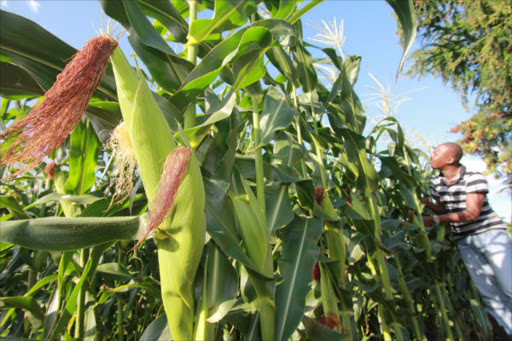
Greenpeace Africa has condemned the move by the Ministry of Agriculture to grow maize in Zambia.
In a statement on Tuesday, the organisation’s Communication Manager Hellen Dena said it was unsettling for the ministry to lease land in Zambia when Kenya has about 5.8 million hectares of fertile land.
She added that the move was a deviation from President William Ruto’s promise of a Bottom-Up approach.
She reiterated that the country has enough land to grow maize, adding that the farmers are capable of the task.
“President Ruto talked big on the bottom-up approach and supporting smallholder farmers to produce more; sourcing maize from Zambia is a deviation by the Ministry of Agriculture on the president’s commitment,” she said.
Dena noted that the Ministry ought to support the farmers and create a conducive partnership between the government, farmers and other key players in the agricultural sector.
Noting that maize is Kenya’s staple food, Greenpeace Africa expresses worry that leasing land in Zambia exposed the country to economic vulnerabilities.
“A country that is not able to grow its own staple food exposes itself to all kinds of social and economic vulnerability. Production of maize locally means that many other local businesses benefit in the process,” Dena said.
The organisation recommended that Agriculture CS Mithika Linturi should subsidise the cost of farm inputs.
He should also support farmers to use sustainable forms of agriculture that ensure healthy food at a lower cost.
On March 6, CS Linturi met with the Zambian Agriculture Minister Rueben Mtolo in Lusaka.
During their talks, Linturi said the two countries would sign an MoU to allocate Kenyan farmers 20,000 hectares of land for large-scale farming.
“The deal will help us to achieve food security by allowing Kenyan farmers to get permits to practice farming in Zambia and export the food to Kenya,” he said.
As a Kenyan, it tells me everything that the Zambia government sees the soon-to-come Kenyan farmers as the equals of the white Zimbabwe large-scale farmers who escaped from their country and became big farmers in Zambia. Those are farmers who came with hundreds of farm tractors each and could do 1,000 or more hectares because they had the resources to do so.
Those are the kind of farmers Ruto is leasing land for in Zambia with taxpayer money. It is the Rutos and his friends who will be farming those farms in Zambia and exporting food to Kenya. So the land they are going to use is paid for by Kenyans and then they have to get paid again when they export their maize to Kenya. This is better than heaven for them. Bwana Asifiwe.

